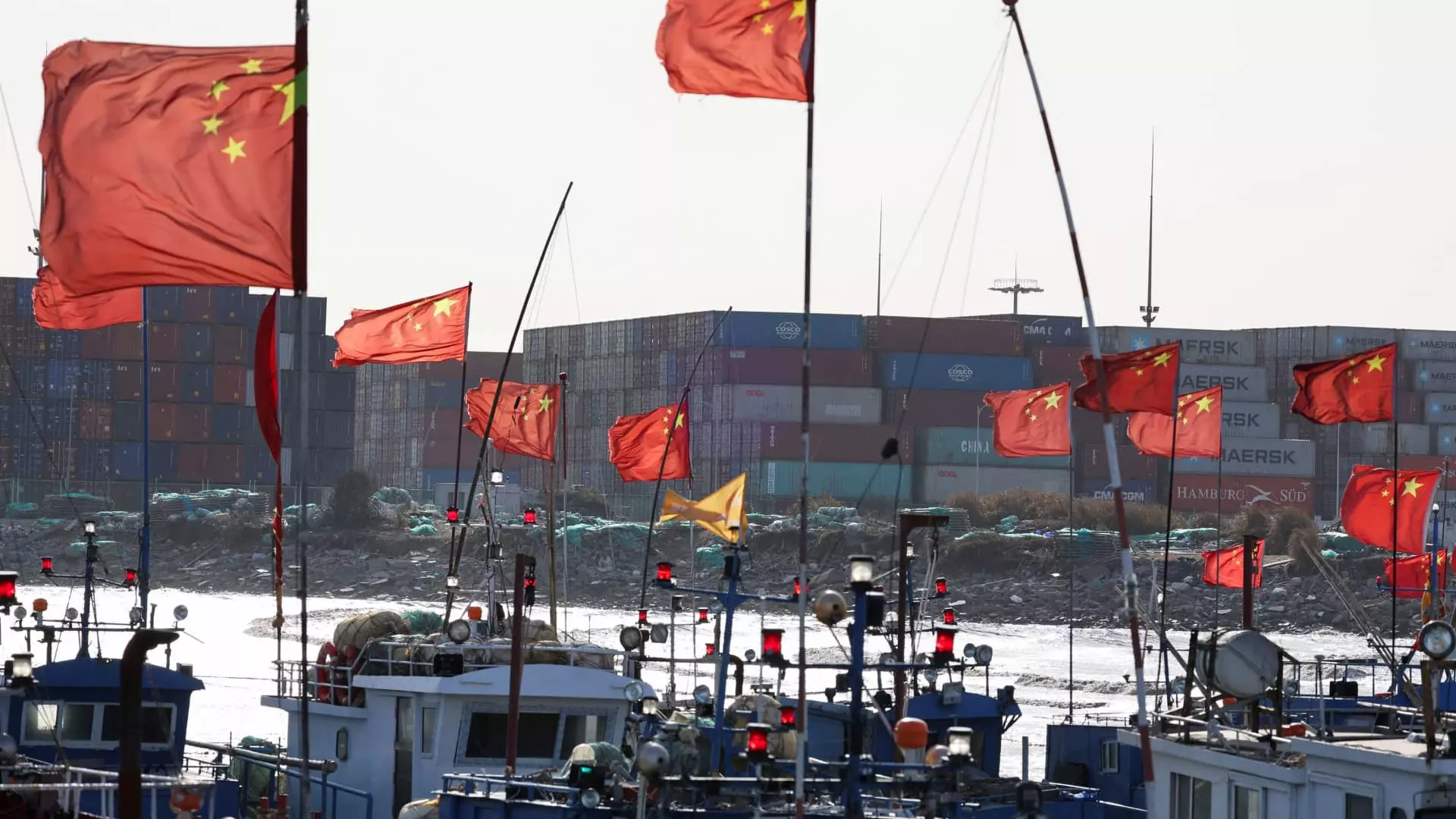In the realm of global geopolitics, diplomatic exchanges often teeter on the brink of conflict, serving as both a buffer and a torch for illuminating deeper issues. The recent backlash from China in response to the Group of Seven (G-7) nations’ accusations regarding its maritime activities exemplifies this precarious balancing act. The diatribe issued by China, characterizing the G-7 statement as “filled with arrogance, prejudice, and malicious intentions,” signals a troubling escalation in tone that leaves little room for constructive dialogue. This overtly defensive posture not only highlights China’s sensitivity to international critique but may also foreshadow a significant shift in its diplomatic endeavors.
The Provocative Actions on the High Seas
At the crux of this escalating tension lies China’s maritime ambitions, particularly in the South China Sea—a strategic waterway vital to global trade. With $5 trillion traversing these waters annually, China’s claims extend over virtually the entire sea, which has provoked fierce objections from neighboring countries like the Philippines. The G-7’s admonishment of China’s “illicit, provocative, coercive, and dangerous actions” denotes a collective concern for international maritime law and regional stability, a concern that China is seemingly dismissing outright. They assert these claims with an uncanny sense of entitlement, ignoring historical treaties or the interests of smaller nations while engaging in aggressive land reclamation and militarization of outposts.
The Taiwan Strait: A Flashpoint of Tension
Taiwan remains another significant flashpoint in this narrative. The G-7’s unwavering support for the island republic, coupled with China’s refrain of “non-negotiable” claims, paints a picture of an impending stalemate. China’s threats and military maneuvers in the Taiwan Strait resonate like a drumbeat of instability, overshadowing the delicate balance that has long preserved peace in the region. The G-7’s insistence on maintaining stability across this crucial waterway is not merely rhetoric; it is a reminder that Taiwan’s fate holds implications well beyond its geographic confines. China’s stance leaves little hope for diplomatic resolution, veering dangerously close to military confrontation, a scenario that could have profound ramifications for international peace.
China’s Military Expansion: Warning Signs Ahead
What most tends to go unexamined amid the exchanges between China and the G-7 is the lion’s share of military expansion that China has undertaken. With the world’s largest navy, including multiple aircraft carriers and a base in Djibouti, China is not just defending its claims; it is aggressively expanding its reach. Recent covert military drills in the Tasman Sea, conducted without any prior notification to Australia, underscore a tactical approach that puts regional allies on high alert. It’s not merely an assertion of power but a calculated strategy to shift the balance of maritime control. This militarization, particularly in areas of significant international interest, inevitably alerts global stakeholders to the urgency of these cautionary signals.
The Global Implication: A Call for Unity
The backdrop of this geopolitical tug-of-war is a resounding call for unity among the G-7 members, who evidently recognize the destructive potential of allowing China’s misconduct to go unchecked. Their joint condemnation should not only serve as a critique of China’s actions, but also function as a rallying point for other nations. Encouraging a renewed commitment to upholding international law, specifically in maritime disputes, may be one of the few avenues left for global diplomacy. The reality remains, however, that acknowledging China’s provocations and establishing a unified front will not be a mere walk in the park; bargaining with a nation that displays such overt disdain for criticism is fraught with challenges.
The Uncomfortable Realities of Chinese Diplomacy
Ultimately, China’s reaction to the G-7’s statements denotes a wider dilemma for international diplomacy—how to engage a significant global player whose actions seem increasingly motivated by nationalism and territorial ambition. The rhetoric emitted from Beijing suggests that any dialogues are overshadowed by an unwillingness to yield signals of moderation, leaving observers to wonder whether cooperation can be salvaged in this fraught environment. As we stand at the intersection of diplomacy and power play, the spotlight shines starkly on how the global community navigates this precarious landscape of maritime claims and national pride. The world watches, with bated breath, as the tides of diplomacy rise and fall.


Leave a Reply